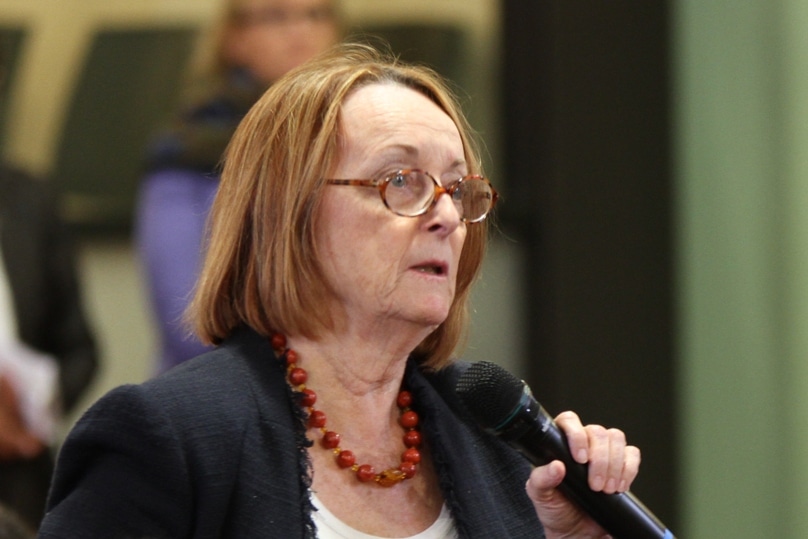
Why, after millennia of regarding euthanasia as a serious crime, do many people now consider it an ethical “medical treatment”? In part, it comes from a failure to factor into our public policy and health policy decisions, concern for the common good in both the present and future.
By the common good, I mean all those facilities – material, cultural, institutional – that we all enjoy and use to fulfil our inherent obligations as human beings to care for each other. It embodies concepts that we have, common interests, mutual concerns, reciprocal obligations and rights, and must conduct ourselves consistently with upholding the values that are precious to us.
“the netherlands is considering “over 70 and tired of life” or feeling one has a “completed life” as bases for euthanasia”.
A vast multitude of factors has coalesced to cause our loss of commitment to the common good. Among them are the “progressive” focus only on individuals’ rights to “expressive autonomy”; the rise of moral relativism, in which notions of good or evil depend only on one’s own view; “presentism”, or a failure to look to the past for knowledge or the likely future consequences for warnings; the loss of shared religion and opportunities to experience transcendence; and the massive increase in loneliness, and single-person households.
Together these factors can cause a loss of a sense of purpose and meaning in life. People can respond by feeling that “life is not worth living” and seek euthanasia. The Netherlands is considering “over 70 and tired of life” or feeling one has “a completed life” as bases for euthanasia.
Protecting the fragile and vulnerable
The case for euthanasia is comparatively easy to make. It focuses only on a suffering individual person and is simple, straightforward and un-nuanced. It does not consider the harms and risks borne by fragile and vulnerable people. We all agree that we must relieve pain and suffering and it is a breach of fundamental human rights for healthcare professionals not to do so. But we must kill the pain and suffering, not the person with the pain and suffering.
For instance, elderly people must be protected from abuse. We know from recent inquiries that up to 14 percent of elderly people are abused, mostly by a close relative, often an adult child. Presumptive heirs see that “their” inheritances are being dissipated, take control of their elders’ assets and use them for themselves – what is called “early inheritance syndrome”. Imagine a combination of this and “early death syndrome” from euthanasia. It is certainly a lethal cocktail.
Analogous situations exist for people with disabilities, mental health issues and chronic illnesses, who are among the most fragile and vulnerable people. Pro-euthanasia advocates strongly deny that euthanasia affects anyone other than the person euthanised, and reject its broader impacts with the slogan: “My body; my life; my choice”.
We are not isolated atoms
In contrast, a balanced approach recognises that we humans are not isolated atoms and also seeks to protect our relationships and the broader common good. In Australia, we are incredibly fortunate to have the 60,000-year-old, First Nations Aboriginal culture, the longest continuous culture in the world, from which to learn. Young people are increasingly realising how blessed we are, in this respect. Their culture teaches that we must consider both individuals and the “mob”.
How might we be able to recover this sense of protecting our “mob”? There is no point repeating what doesn’t work: saying that something is inherently wrong, or seriously harms the common good. “Progressive”, individualistic societies and individuals don’t respond to these arguments.
Wonder and awe can help us act ethically
While not abandoning our values, we could take a different approach I have found useful, because it can be accepted by both secular people and religious ones of all faiths. The experiential knowledge gained from experiences of “amazement, wonder and awe” can help us to decide and act ethically.
In particular, it can help us to see that we humans, and, indeed, all life, are intricately connected and thus help us to recover a concern for the “common good” in the broadest sense of that concept. We need to stand in awe before Nature – the Creation – in gratitude and wonder, and see ourselves as having obligations to protect it, including, in the euthanasia context, our own humanness.
For instance, I have stood in one of the oldest places above sea on Earth, the Northern Flinders Ranges of South Australia, in a dry creek bed full of huge, hundreds of years old River Gums that seemed like tiny specks beside the 650 million-years-old towering rock faces behind them.
Just as we could destroy this place of wonder, we can also destroy our metaphysical, or socio-cultural ecosystem. Instead, we should see our interconnectedness as a wondrous and precious reality worth protecting, and band together with fellow-travellers to do just that. Even a few ethical voices crying in the moral wilderness can make a major difference.
This opinion piece is based on a lecture given on 15 March to the 2022 Colloquium for Ethicists and Mission leaders, hosted by the Catholic Health Association of the United States of America.
Related Articles:
